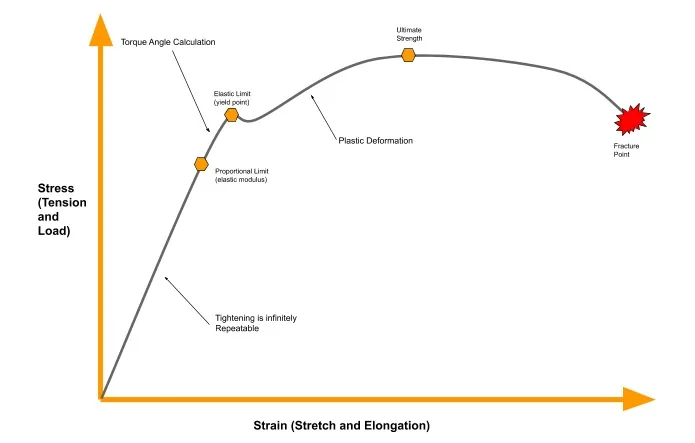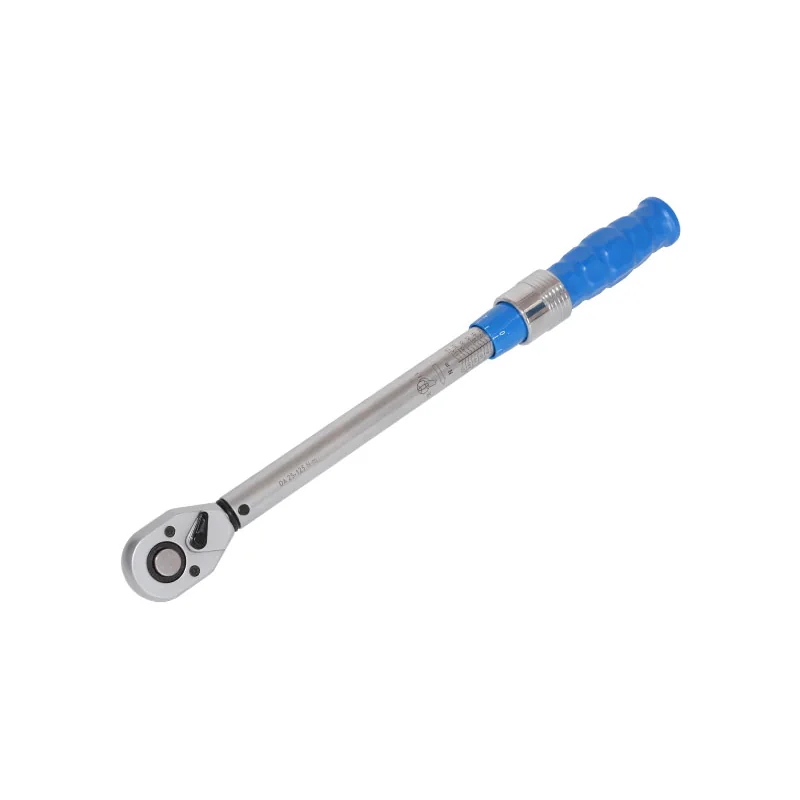The Role of Torque and Angle in Ensuring Secure and Reliable Fastening
In critical applications across various industries, ensuring the integrity of assembled components is paramount. Fastener tightening strategies play a crucial role in achieving this objective, with torque and angle measurements acting as key parameters for achieving the desired clamp load.
Understanding Torque and Angle
Torque refers to the rotational force applied to a fastener, calculated by multiplying the force by the distance from its application point. Applying insufficient torque can lead to loose connections, while excessive torque risks damaging the fastener or surrounding materials.
Angle measurement complements torque by enabling controlled stretching of the fastener. By turning the fastener a specific number of degrees after reaching a base torque value, a predictable amount of stretch is achieved. This stretch translates to a precise clamp load, ensuring components are securely held together.
The provided diagram effectively illustrates the relationship between stress and strain in a fastener. The ideal tightening zone lies between the proportional limit (elastic limit) and the yield point. Within this range, the fastener exhibits some elasticity but primarily undergoes plastic deformation, ensuring a high clamp load and tight joint.

Stretch Bolts: A Specialized Approach
Stretch bolts are a specific type of fastener designed to operate beyond the elastic limit. They experience permanent plastic deformation upon tightening, requiring replacement after each use. Due to their ability to achieve superior clamp loads, stretch bolts are commonly employed in applications demanding exceptional sealing, such as automotive cylinder head repairs.
Ensuring Accuracy in Torque Angle Measurements
Traditionally, torque and angle measurements were achieved using separate tools. After tightening the fastener to a specified torque using a click wrench or similar device, a torque angle gauge (degree wheel) was attached to measure the additional rotation required.
Modern advancements have led to the development of digital torque angle wrenches. These combine torque and angle measurement capabilities in a single tool, offering increased convenience. However, potential drawbacks like the need for mode switching and level calibration necessitate careful consideration in fast-paced industrial environments.
The Importance of Torque Analyzers and Sensors
Torque analyzers and sensors play a vital role in ensuring the accuracy of torque angle wrenches. They provide a highly precise measurement of the wrench's output, including settings for "torque plus angle." This data is crucial for:
-Verifying the proper calibration of torque angle wrenches.
-Monitoring and controlling the quality of tightened fasteners.
-Providing mechanical engineers with data for optimizing product design and assembly line processes.
In automated manufacturing settings, torque angle wrenches are often integrated into control systems. Regardless of the application, torque analyzers and sensors remain essential tools for maintaining accuracy and ensuring reliable fastening.
How Torque Angle Works in Practice
The process of using torque angle measurements begins with engineers determining the desired clamp load for the joint. Based on fastener size and material properties, they calculate the required bolt stretch to achieve this load. The thread pitch of the fastener is then factored in to determine the number of degrees of rotation needed to achieve the desired stretch.
While the underlying calculations might seem complex, they are typically pre-determined by engineers. Assembly workers then need to accurately set the initial torque (often a relatively low value) and precisely measure the subsequent rotation.
Tools for achieving this range from simple DIY solutions like protractor-based templates to sophisticated digital torque wrenches with built-in angle gauges.
Conclusion
While torque angle measurements might not become the sole standard in the automotive industry, their growing prevalence underscores their importance. Understanding and applying these techniques effectively equips assembly workers and engineers with a valuable skillset for achieving secure and reliable fastening in critical applications.
Why Choose SAIVS™ as Your Supplier?
With 20 years of industry experience, SAIVS is a leading Chinese manufacturer of high-quality tools, offering competitive pricing and excellent customer service.We pride ourselves on exceptional quality control, extensive experience, and comprehensive after-sales service.
